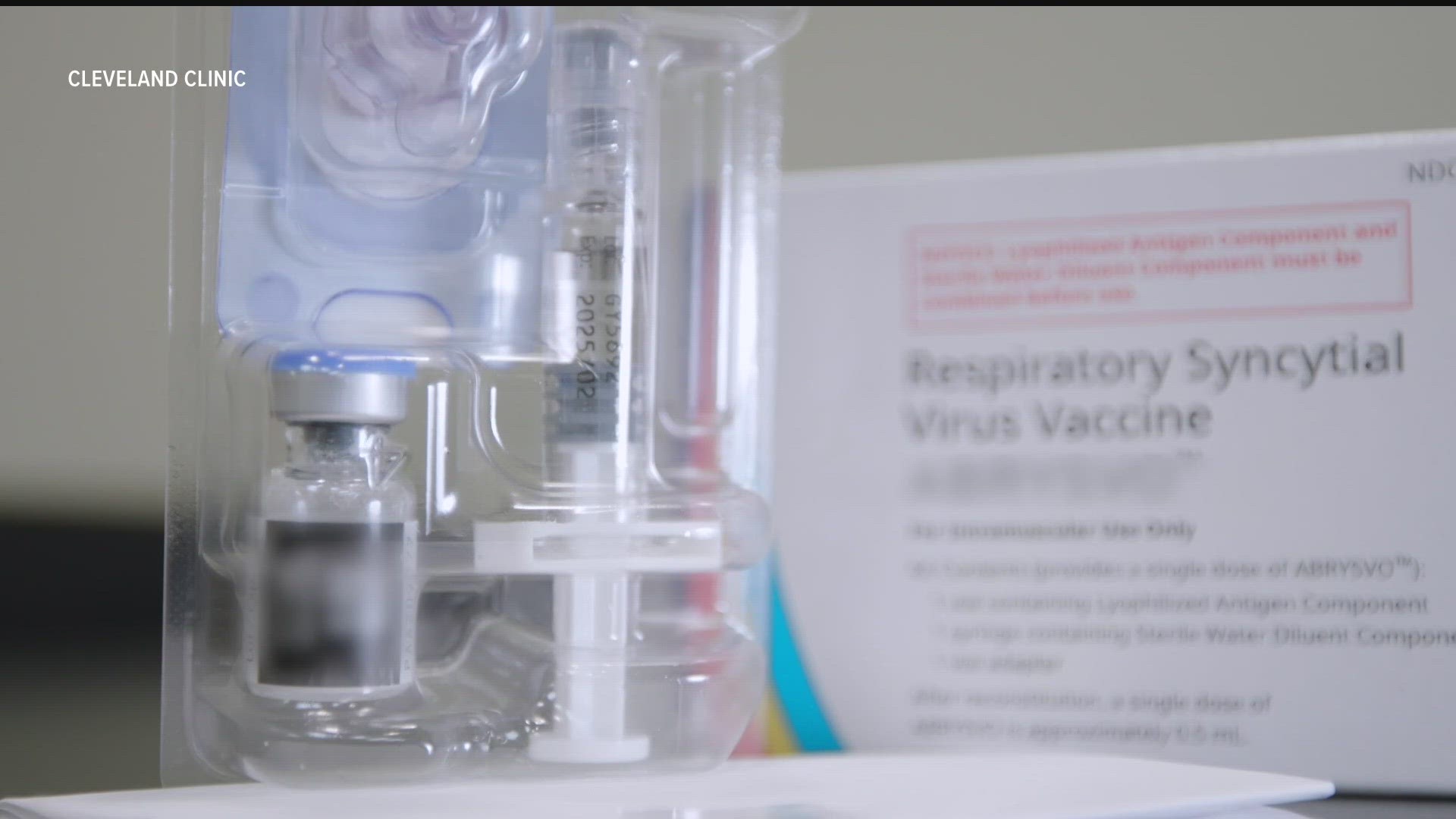MINNEAPOLIS, Minnesota — On Thursday, the Minnesota Department of Health launched a new web page to track viral respiratory illness data.
It includes MDH's weekly influenza and respiratory illness activity report for the week ending on Oct. 14.
Data reveals a slight increase in hospitalization rates for RSV. COVID-19 hospitalization rates remain similar to last week, following a slow increase over the past two months. But overall, rates remain low this early in the season.
But the updated COVID-19 vaccines are off to a slow start.
According to MDH, less than 5% of Minnesotans are up to date on recommended COVID-19 vaccine doses. The MDH website says, "For ages 6 months through 4 years, up to date means at least two doses of a COVID-19 product, one of which must be a 2023-2024 COVID-19 vaccine. For ages 5+, up to date means one dose of a 2023-2024 COVID-19 vaccine."
"As they keep releasing these vaccines, they're making them more and more specific to the types of COVID we're seeing out there right now. So if you haven't gotten this one, you truly don't have the best protection against the current strain," said Dr. Zeke McKinney, occupational and environmental medicine physician for HealthPartners.
However, some people have expressed challenges when they attempt to get the updated vaccine.
"With this updated formulation, the 2023-2024 COVID vaccine, there really hasn't been any supply issues. Where we've seen some hiccups in being able to get vaccinated as quickly as what some patients want to is the distribution channel. So there's plenty of vaccine out there. It's not a shortage," said Erin Suomala, manager of clinical services for Cub Pharmacy.
Suomala said distribution issues seem to be resolved and Cub is in a good stock position now.
However, the high demand for vaccines on top of prescription dispensing responsibilities means they are still running into some issues.
"The choke point is the staffing and resources to make sure that we can do that safely," Suomala said. "We have an incredibly high walk-in demand right now for COVID vaccines which is good. That's good. We want to see people getting vaccinated but the demand is definitely very high."
Lynn Bahta, immunization clinical consultant for the Infectious Disease, Epidemiology and Control Division at MDH, added, "I think those who are really anxious to get vaccinated have been able to find vaccine but it's been a slow-go in terms of the clinics getting up to speed having a product available. Some clinics are still waiting for enough supply to actually start vaccinating and that's not unusual when you see a launch of a vaccine into the private sector where we're not depending on a public program like we did during the pandemic."
Bahta said there are similar issues with the new vaccines to protect against RSV, which is recommended for those ages 60+, pregnant people, infants and infants and children who are at increased risk for severe RSV disease and entering their second RSV season.
"That is what's slowly being launched out this fall. Again, there are a few stutterings in getting these products out. I think we need to be patient and work with our health care provider if they're having a difficult time getting product to figure out other ways that parents can protect their young babies," Bahta said.
Bahta said if someone is eligible for COVID-19, influenza, and RSV shots, it's safe to get them all at the same time.
Dr. McKinney agrees and said it helps avoid missing out on a vaccine over not wanting to schedule a second appointment.
For those who have received COVID-19 vaccines in the past and are thinking they'll skip this round, Dr. McKinney hopes people consider those most vulnerable to COVID-19.
He also said, "Really my biggest concern is long COVID. That's something that I'm seeing in my patients and we don't know how to predict who is going to get it and when. We do know the more times you get COVID, the greater risk you're going to have of getting it... It's just a really complicated condition to have that can be very debilitating."
All three experts we spoke to said it does not matter which brand people go with for their updated COVID-19 vaccine.
Bahta recommends people check with their insurance company before going in to make sure there are not any restrictions on coverage.
You can find places to get your flu and COVID vaccines, here.
Watch more local news:
Watch the latest local news from the Twin Cities and across Minnesota in our YouTube playlist:

